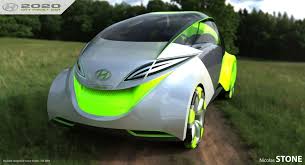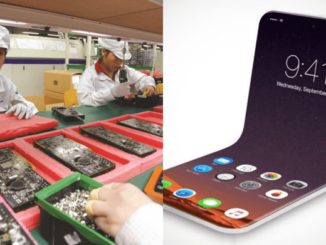
One can say that Artificial Intelligence (AI) is one of the most transformative tech evolutions of all times. AI, much more than as it was before is expected to improve customers’ experience and streamline their business operations. Experts say although more people will depend on AI, but designing and deploying own AI-based systems will remain an expensive proposition for most businesses.
As such, most AI applications will be done as -a-service platforms, which allow users to feed in data and pay for the algorithms or compute resources as they are being used. Presently, the platforms are provided by the likes of Amazon, Google, and Microsoft, but in the year, the providers are expected to increase and are likely to start offering more tailored applications and services for specific or specialized tasks. This means that more people will embrace the applications in the year.
5G data network
5G mobile technology has the potential to accelerate the application of artificial intelligence (AI) across industries, leading to advances in driverless cars, smart cities, telemedicine, and the Internet of Things (IoT), as per Blackrock Investment Institute.
Pundits boasted that the 5th generation of mobile internet connectivity is going to provide super-fast download, upload speeds and more stable connections. Although, 5G, launched first in 2019, was a luxury invention which operations was limited to confined areas or major cities. In 2020, the innovation is predicted to fly higher with more affordable data plans, as well as greatly improved coverage.
Super-fast data networks will help streaming of movies and music at higher quality. Hence, companies are advised to consider the business implications of having super-fast and stable internet access anywhere. The increased bandwidth will enable machines, robots, and autonomous vehicles to collect and transfer more data than ever, leading to advances in the area of the Internet of Things (IoT) and smart machinery.
Autonomous Driving

This is a major invention expected to flood the market in 2020. Asides car, trucking and shipping are expected to become more autonomous. It has also been predicted that other in-car systems not directly connected to driving, such as security and entertainment functions, will become increasingly automated and reliant on data capture and analytics. Google’s sister-company, Waymo, was said to have completed a trial of autonomous taxis in California, where it transported more than 6200 people in the first month.
This invention, however, will require changes to laws, existing infrastructure, and social attitudes before it stands strong.
Personalized and predictive medicine
Technology is also playing big in the medical space. This is further aided by wearable devices that capture data and give people ability to increasingly predict and treat health issues even before symptoms show up. In 2020, therefore, the medical space is anticipated to witness a rise in more personalized approaches with regards to treatment.
Bernard Marr, a technology advisor said, “When it comes to treatment, we will see much more personalized approaches. This is also referred to as precision medicine, which allows doctors to more precisely prescribe medicines and apply treatments, thanks to a data-driven understanding of how effective they are likely to be for a specific patient.
“Although not a new idea, thanks to recent breakthroughs in technology, especially in the fields of genomics and AI, it is giving us a greater understanding of how different people’s bodies are better or worse equipped to fight off specific diseases, as well as how they are likely to react to different types of medication or treatment.
“Throughout 2020, we will see new applications of predictive healthcare and the introduction of more personalized and effective treatments to ensure better outcomes for individual patients.”
Computer Vision
Also expected to hit the technology market in 2020 are computer vision equipped tools and technology for multipurpose functions. This is fundamental to the way autonomous cars will see and navigate their way around danger. Production lines will employ computer vision cameras to watch for defective products or equipment failures, and security cameras will be able to alert users to anything out of the ordinary, without requiring 24/7 monitoring. Computer vision also enables face
recognition.
The technology has proven useful in controlling access to smartphones in the case of Apple’s FaceID and how Dubai airport uses it to provide a smoother customer journey. It will become more popular this year.
Extended Reality
Extended Reality (XR) is a catch-all term that covers several new and emerging technologies being used to create more immersive digital experiences. More specifically, it refers to virtual, augmented, and mixed reality.
These technologies have been around for a few years now but have largely been confined to the world of entertainment – with Oculus Rift and Vive headsets providing the current state-of-the-art in videogames, and smartphone features such as camera filters and Pokemon Go-style games providing the most visible examples of AR. In the new year, it will be prominently explored in businesses.
Blockchain Technology
Blockchain is a digital ledger used to record transactions but secured due to its encrypted and decentralised nature. In 2019, it was argued that the technology was over-hyped and perhaps not as useful as first thought. However, continued investment by the likes of FedEx, IBM, Walmart and Mastercard, during 2019, is likely to start to show real-world results, and if they manage to prove its case, could quickly lead to an increase in adoption by smaller players.


![Village School Children Create Generator That Runs on Water in anambra state [Photos]](https://www.gistlover.com/wp-content/uploads/2018/10/village9.jpg)
